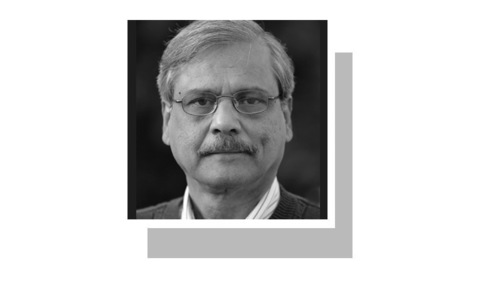PRIME MINISTER Imran Khan has said one of the major problems for Pakistan is the lack of long-term planning. Speaking at a public event, Mr Khan lamented that the requirement of holding elections every five years led to planning aimed at winning the next poll. He said this five-year election cycle was a “tragedy” because it was a major hurdle for the government to think many years ahead. He quoted the example of China where leaders could think long term and benefit from continuity of policy.
The prime minister may have diagnosed short-term planning as a critical problem in governance but he is wide off the mark when he blames the election cycle for this problem.
Pakistan has experienced decade-long continuous rule at least thrice in its history. If continuity was the sole criterion for progress, Pakistan would not have been plagued with governance and underdevelopment issues as it is today. The real problem is lack of political stability often germinating from a lack of political legitimacy. These twin menaces have wreaked havoc on Pakistan’s governance structures and continue to create fault lines in new and unique ways.
Mr Khan may idolise the stable continuity of policies in China, but he may want to remind himself that Pakistan is a constitutional democracy and is governed under the overarching umbrella of this consensus document. The tragedy is not that we have a five-year election cycle but that we have been unable to keep up with it. In seven decades if only a handful of governments have been allowed to complete their five-year mandate, then the problem associated with lack of continuity that the prime minister has pointed out lies in the unwillingness of power wielders to let governments complete their five-year cycle.
The prime minister may want to dwell more on factors that inhibit long-term planning in order to get answers that fit more neatly into the constitutional structure of Pakistan. If indeed we want to benefit from continuity and longer-term vision for governance, we need to ensure that elections are held regularly in a free, fair and transparent manner so that stability and legitimacy are embedded in the democratic fabric of our electoral and governance system.
This structure allows for the type of continuity that Mr Khan is referring to. If a government has done well in terms of its performance, citizens can always vote it back in for another five-year term thereby enabling it to carry on with its policies. At the same time, perhaps all major political stakeholders should agree on some basic economic guidelines that can provide continuity even if governments change and bring in new policies. A basic minimum consensus on strategic issues would compensate for the change in policies and ensure continuity to an extent that is required.
Published in Dawn, January 31st, 2021













































